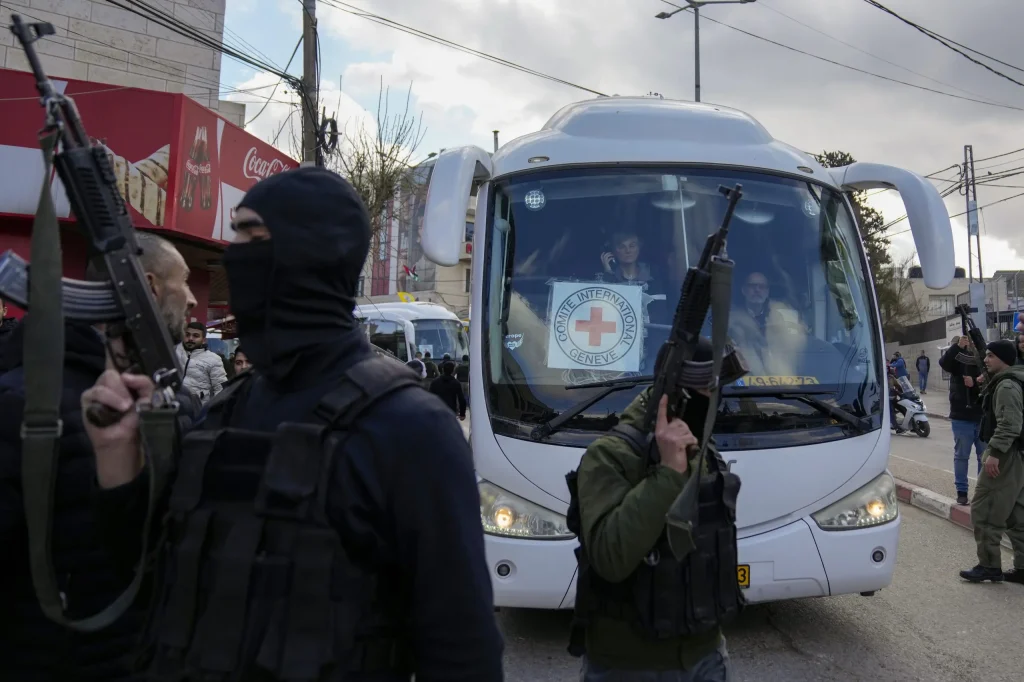The recent release of four Israeli hostages held captive by Hamas in Gaza for 477 days has ignited a complex wave of emotions and debates across Israel. While the nation rejoices at the return of Karina Ariev, Daniella Gilboa, Naama Levy, and Liri Albag, the price paid – the release of 200 Palestinian prisoners, many convicted of heinous terrorist acts – has reopened deep wounds and sparked profound anxieties about future security. This precarious balance between the imperative to save innocent lives and the agonizing cost of freeing convicted terrorists underscores the profound moral and strategic dilemmas facing Israel.
The exchange, part of a high-stakes ceasefire deal between Israel and Hamas, has evoked raw anguish among the families of victims killed by the released prisoners. Their pain is palpable, a stark reminder of the devastating human cost of terrorism and the enduring trauma it inflicts. They confront the unbearable reality that the individuals responsible for shattering their lives are now free, potentially capable of inflicting further violence. This agonizing paradox – celebrating the return of hostages while mourning the renewed freedom of their loved ones’ killers – has exposed a deep societal rift, highlighting the impossible choices faced by a nation grappling with the enduring threat of terrorism.
Despite their personal anguish, many families of terror victims, while acknowledging their pain, have expressed support for the hostage release. Their understanding stems from the shared empathy for the suffering endured by the hostages and their families. This shared recognition of the fundamental value of human life, even amidst profound grief, underscores a powerful sense of collective responsibility within Israeli society. It reveals a commitment to prioritizing the return of captive citizens, even when it requires making incredibly difficult and emotionally charged concessions.
However, the release of convicted terrorists raises serious security concerns. Past experience, particularly the 2011 Gilad Shalit prisoner exchange, has demonstrated a disturbing pattern of recidivism among released terrorists. The fear is that these individuals, hardened by their imprisonment and fueled by extremist ideologies, will return to violence, jeopardizing Israeli security and potentially orchestrating future attacks. This concern is amplified by the knowledge that some of the released prisoners are masterminds of past atrocities, responsible for the deaths of dozens of innocent civilians. Their release not only raises the specter of future violence but also sends a chilling message about the potential rewards for terrorism.
The deal’s implications extend beyond immediate security concerns, raising broader questions about Israel’s diplomatic strategy and long-term security posture. Critics argue that the exchange strengthens Hamas, both materially and symbolically, potentially emboldening future acts of aggression. The release of high-profile terrorists could enhance Hamas’s standing within Palestinian society, potentially bolstering its recruitment efforts and fueling further radicalization. Furthermore, the deal could be interpreted as a sign of weakness, potentially encouraging other terrorist organizations to resort to hostage-taking as a leverage tactic.
Despite these anxieties and criticisms, many view the hostage release as a necessary, albeit painful, step towards national healing. The return of the hostages is seen as a reaffirmation of Israel’s commitment to its citizens and a powerful symbol of societal unity. While the scars of terrorism remain deep, the reunion of the hostages with their families offers a flicker of hope, a reminder of the enduring strength of the human spirit and the resilience of the Israeli people. The difficult path forward requires a delicate balance between ensuring the safety and security of all citizens while upholding the fundamental values of human life and compassion.










